The rainforest is being clear-cut on Sumatra – for our paper
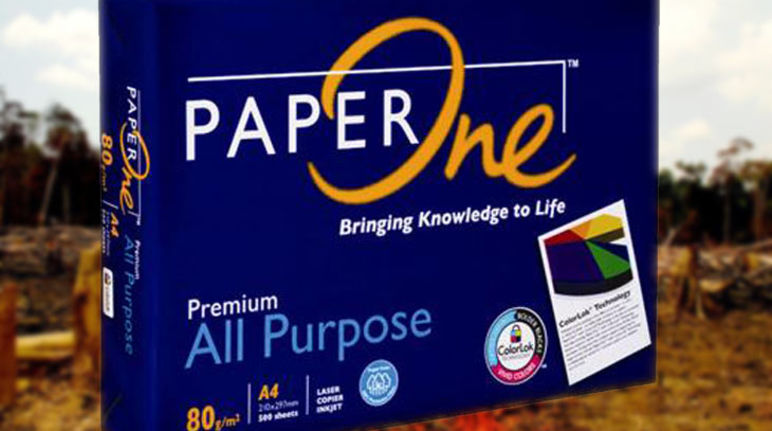 Still frames of the documentary from August 2, 2011: Rainforest is being destroyed, threatening tiger habitat
Still frames of the documentary from August 2, 2011: Rainforest is being destroyed, threatening tiger habitat
In the Indonesian province of Riau, Asian Pacific Resources International Limited, or APRIL, is destroying large sections of rainforest to create acacia plantations. The company uses the wood from the acacia tree to produce PaperOne brand printer paper for international markets. The habitat of the last Sumatran Tigers and the livelihoods of the small farmers living there are threatened by the plantations. PaperOne is also sold by Australian and Asian distributors. Please request these distributors stop carrying this brand. UPDATE: Your protest has a first success: Officeworks has taken our concerns serious and decided to discontinue procurement of PaperOne as of August 24th 2011.Please continue the protest!
News and updates Call to action“”
Destroyers of the rainforest supply paper distributors
APRIL is one of the largest rainforest destroyers in Southeast Asia. The company, which is headquartered in Singapore, operates the largest paper mill in the world in Riau province on Sumatra via its Indonesian subsidiary, PT Riau Andolan Pulp and Paper (PT RAPP). Every year, the conglomerate produces over two million tons of paper fiber in Riau. The PaperOne-brand paper produced by APRIL is distributed by various suppliers around the world. In a documentary aired on August 2, 2011 on the Australian television network ABC, renowned biologist Bill Laurance describes the destruction in Riau by APRIL as "some of the worst forest destruction I’ve ever seen anywhere."
Paper kills tigers and elephants
The rainforest on eastern Sumatra is the home of the Sumatran Tiger and the Asian elephant. The smallest tiger species, the Sumatran Tiger lives only on this Indonesian island and is critically endangered. The red list of endangered species (IUCN) lists the greatest threat to the Sumatran Tiger as "Habitat loss due to palm oil and acacia plantations." IUCN estimates the remaining population of Sumatran Tigers living in the wild to be between 300 and 500 animals. Over the last 25 years, the number of tigers and elephants on Sumatra has declined by 75 percent.
APRIL is displacing small farmers and contributing to global warming
Since 2002, the acacia plantations have continuously expanded. Although environmental preservationists and biologists have warned against the drastic consequences for biodiversity and the climate, APRIL is not only clearing rainforest, but also draining peat bogs. Peat bogs are diverse ecosystems that have a considerable influence on the global climate. Indigenous peoples living in the peatlands are being driven away. On the islands off the coast of Riau province, small farmers are fighting the expansion of the plantations, which threatens their livelihoods. APRIL is using violence to pursue its interests. There have already been fatalities.
More information on APRIL, small farmers, and our climate
APRIL conducting greenwashing
-
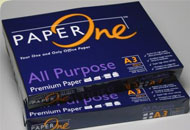
- PaperOne brand paper
In a statement from 2008, Paper Union claims: "APRIL plants roughly 35,000 to 50,000 hectares of new plantation forest each year. The company is consequently making a major contribution to the reforestation of Sumatra and attaining a positive CO2 balance."
Not everyone is convinced of the conglomerate's eco-credentials, however. "I think APRIL is doing some greenwashing. The forests they plant are cut down five years later and processed into paper fiber. I would not describe that as environmentally friendly or sustainable," criticizes Laurance. APRIL even had its industry-friendly FSC seal revoked in 2010 due to the environmental destruction it has brought to Sumatra.
Support our call to boycott APRIL paper. Send distributors the e-mail below. Please also inform us if you discover PaperOne at other suppliers.
UPDATE: Your protest has a first success: Officeworks has taken our concerns serious and decided to discontinue procurement of PaperOne as of August 24th 2011.
Please continue the protest!
Paper production damages the climate
The acacia monocultures are expanding on the Kampar Peninsula, a rainforest landscape in Riau that is characterized by its peat bogs. APRIL cut through the peat forest with a road and cleared an additional 20,000 hectares. After that, the company drained the peat bogs so that it could establish its plantations on the land it gained. The destruction of this diverse ecosystem has devastating effects on the global climate. Peat forests are a powerful carbon sink. One hectare of drained peat forest with a depth of 1 meter releases up to 70 tons of CO2 each year. Multiplied by hundreds of thousands of hectares, the consequence is a catastrophe for the climate. By destroying its rainforests, Indonesia has become the third-largest emitter of CO2 in the world.
Plantations destroy the livelihoods of indigenous peoples
APRIL wants to expand its plantations to Pulau Padang, an island off the coast of Riau. Of the 14 communities on the island, 12 would be directly impacted by the plantations. The people on Pulau Padang process the pith of the sago palm as small-scale producers. The acacia plantations would completely destroy this source of income. People were injured in May of 2011 while protesting against the plantations. The experiences of communities on the mainland demonstrate that the acacia tree will not be any good for the people of Pulau Padang. The local environmental organization Scale Up started documenting the violation of indigenous peoples' rights on the Kampar Peninsula in 2009. For centuries, the Akit and Melayu have relied on the rainforest for their livelihoods. Small-scale farming, fishing, and hunting depend upon the ecosystem of the forest. The plantations in some cases have been established on community lands without notifying residents. The monocultures destroy their livelihoods, and the promised economic benefits do not materialize. Communities do not receive a share of the profits. During protests against the plantations in June 2009, two farmers were killed by private security forces working for one of APRIL's suppliers.
To:
Stationery Wholesalers Australia
Office-Choice Australia
Print and Media Warehouse Australia
Stationery World Australia
Unison Trading CO Malaysia
Dear Sir or Madam,
I have noted with concern that you carry PaperOne brand printer paper.
To produce PaperOne paper, massive areas of rainforest in the Indonesian province of Riau are being cleared to create acacia plantations. The manufacturer, APRIL (Asia Pacific Resources International Limited), is also draining large areas of peat bog. APRIL's production methods are an ecological, social, and climatic catastrophe.
The rainforest on Sumatra is a highly diverse ecosystem – if the forest dies, the native animals and plants will have no chance to survive. This development especially threatens the critically endangered Sumatran Tiger – the greatest threat to this animal is listed as "the loss of habitat through palm oil and acacia plantations." In 2010, APRIL was banned from the FSC certification system as a consequence of its production methods.
Furthermore, the rainforest is home to agricultural communities that process products traditionally and sustainably. The plantations are threatening to drive these farmers from their land and destroy their livelihoods.
The peat bogs in particular are important natural carbon sinks. In destroying the bogs, massive quantities of stored greenhouse gases are released into the atmosphere. Due to the destruction of its rainforests, Indonesia is the third-largest CO2 emitter in the world. The acacia plantations created to manufacture PaperOne paper exacerbate the negative impact on our climate.
As a distributor, you share responsibility for ensuring that the products you carry are not produced in a way that harms people or the environment.
I emphatically request that you stop carrying the PaperOne brand, consequently setting a positive example of how suppliers can embody corporate responsibility, respect for human rights, and environmental protection.
Respectfully,











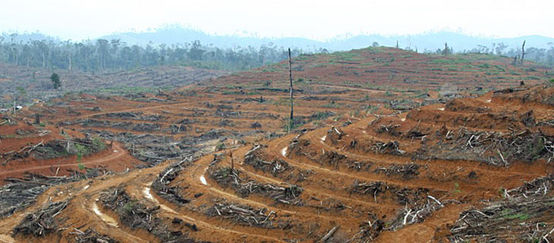
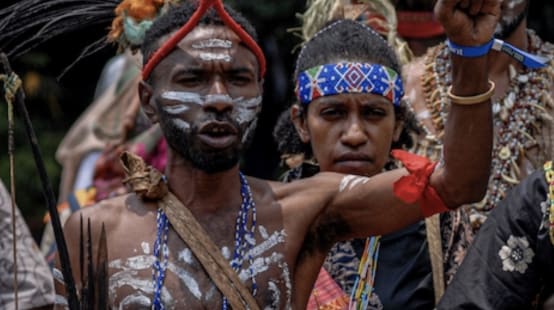
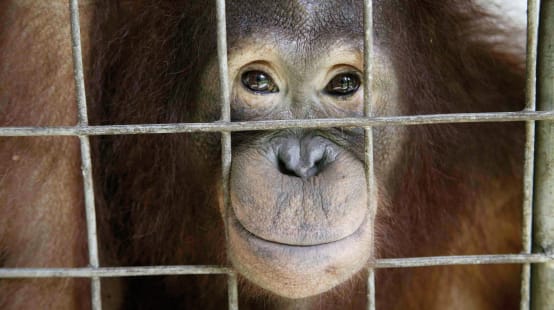
 Recent successes
Recent successes